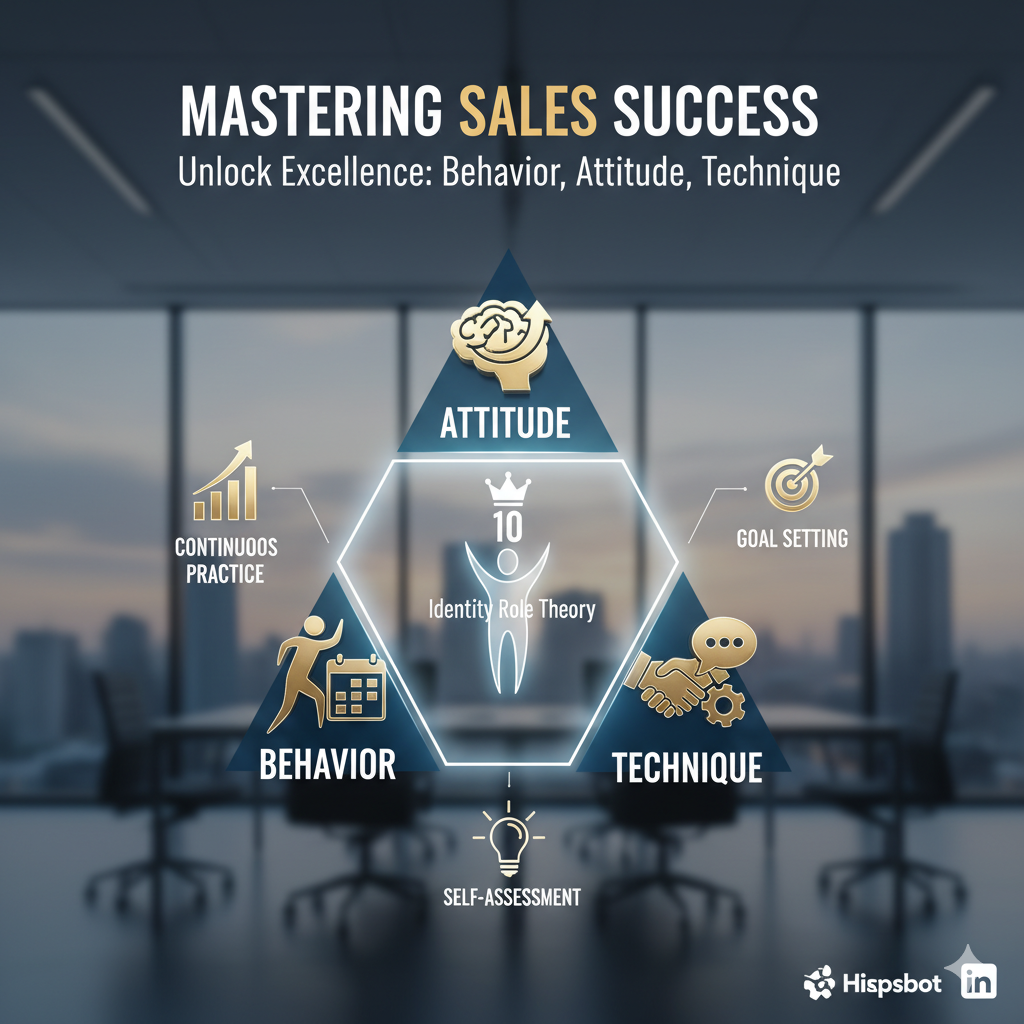Mastering Sales Success: Techniques and Attitude Alignment

Unlock the Secrets to Achieving Sales Excellence through Behavior, Attitude, and Technique Alignment
The Power of the Success Triangle: Behavior, Attitude, and Technique
Achieving sales success isn't just about hitting targets; it's about mastering the intricate balance of behavior, attitude, and technique. This triad, known as the 'Success Triangle,' forms the cornerstone of any high-performing sales professional's strategy.
Behavior refers to the actions and practices you put in place to achieve your goals. This includes your daily routines, outreach activities, and follow-up processes. Consistently executing well-thought-out behaviors can set a strong foundation for success.
Attitude is the mindset you bring to your work. A positive, resilient attitude can significantly influence your interactions and outcomes. Even on challenging days, maintaining a constructive attitude can help you navigate obstacles and stay focused on your objectives.
Technique encompasses the skills and methods you use to close deals. From effective communication strategies to advanced negotiation tactics, honing your technique ensures you can adapt to different scenarios and client needs. Mastering these three elements will align your efforts and amplify your sales success.
Exploring Identity Role Theory: Elevate Your Self-Perception
The 'Identity Role Theory' delves into the relationship between how we perceive ourselves and our performance in various roles. Understanding this theory can be a game-changer for sales professionals striving for excellence.
At its core, Identity Role Theory posits that we're born with an inherent sense of self-worth, which we can visualize as a score of ten. Throughout our lives, various roles—such as being a salesperson, a teammate, or a leader—subject us to external evaluations. These evaluations can sometimes impact our self-perception, but it's crucial to maintain a high view of ourselves.
By recognizing and nurturing your intrinsic value, you can perform confidently and effectively in your sales role. Remember, your self-worth isn't defined by external judgments but by your belief in your abilities and potential. Elevating your self-perception aligns your identity with your aspirations, driving you toward consistent high performance.
The Importance of Continuous Practice and Self-Assessment
Continuous improvement is key to sustaining success in sales. Regular practice and self-assessment allow you to refine your skills and adapt to evolving market dynamics. It's essential to create a feedback loop where you can evaluate your performance, identify areas for improvement, and implement changes.
Engaging in role-playing exercises, seeking feedback from peers, and utilizing tools like AI simulators can provide valuable insights and enhance your technique. Moreover, setting aside time for self-assessment helps you stay on track with your goals and recognize your progress.
Remember, even seasoned sales professionals benefit from ongoing learning and development. Embrace a growth mindset, and don't shy away from revisiting foundational concepts or exploring new strategies. Continuous practice and self-assessment ensure you remain agile and effective in your sales endeavors.
Setting and Achieving Personal and Professional Goals
Goal setting is a fundamental aspect of achieving sales success. Clear, well-defined goals provide direction and motivation, enabling you to channel your efforts effectively. It's important to set both personal and professional goals, as they often interrelate and contribute to your overall well-being and performance.
Start by outlining your long-term objectives and breaking them down into manageable, short-term milestones. Ensure your goals are specific, measurable, achievable, relevant, and time-bound (SMART). This approach provides a structured roadmap and makes it easier to track your progress.
In addition to professional targets, set personal goals that align with your values and aspirations. Whether it's improving work-life balance, pursuing a hobby, or enhancing your health, personal goals contribute to a fulfilling and well-rounded life.
Regularly review and adjust your goals to reflect changes in your circumstances and priorities. Celebrate your achievements along the way, and use any setbacks as learning opportunities. By setting and achieving personal and professional goals, you create a balanced, purpose-driven path to sales success.
By integrating the principles of the Success Triangle and Identity Role Theory, and committing to continuous practice and goal setting, you can unlock your full potential and achieve sustained sales excellence. Stay driven, innovative, and trustworthy, and let these qualities guide you on your journey to success.

